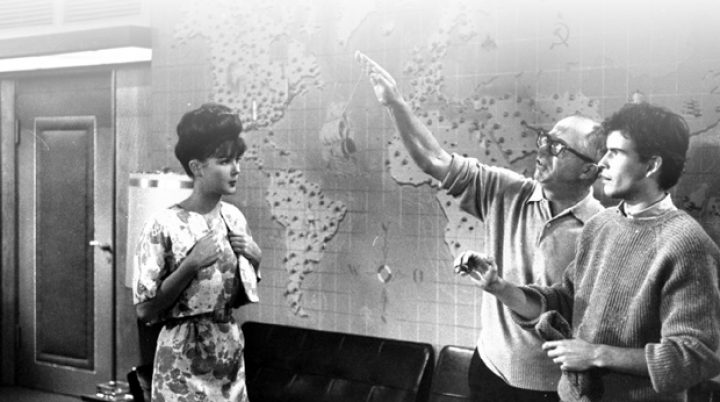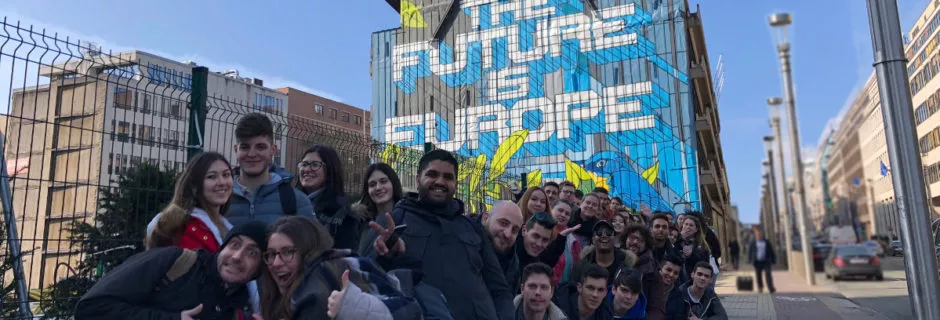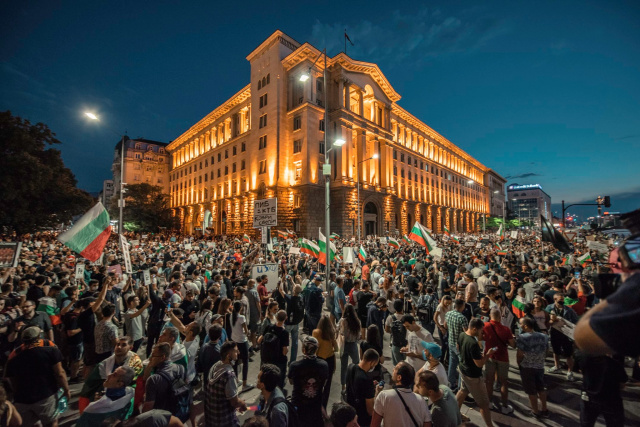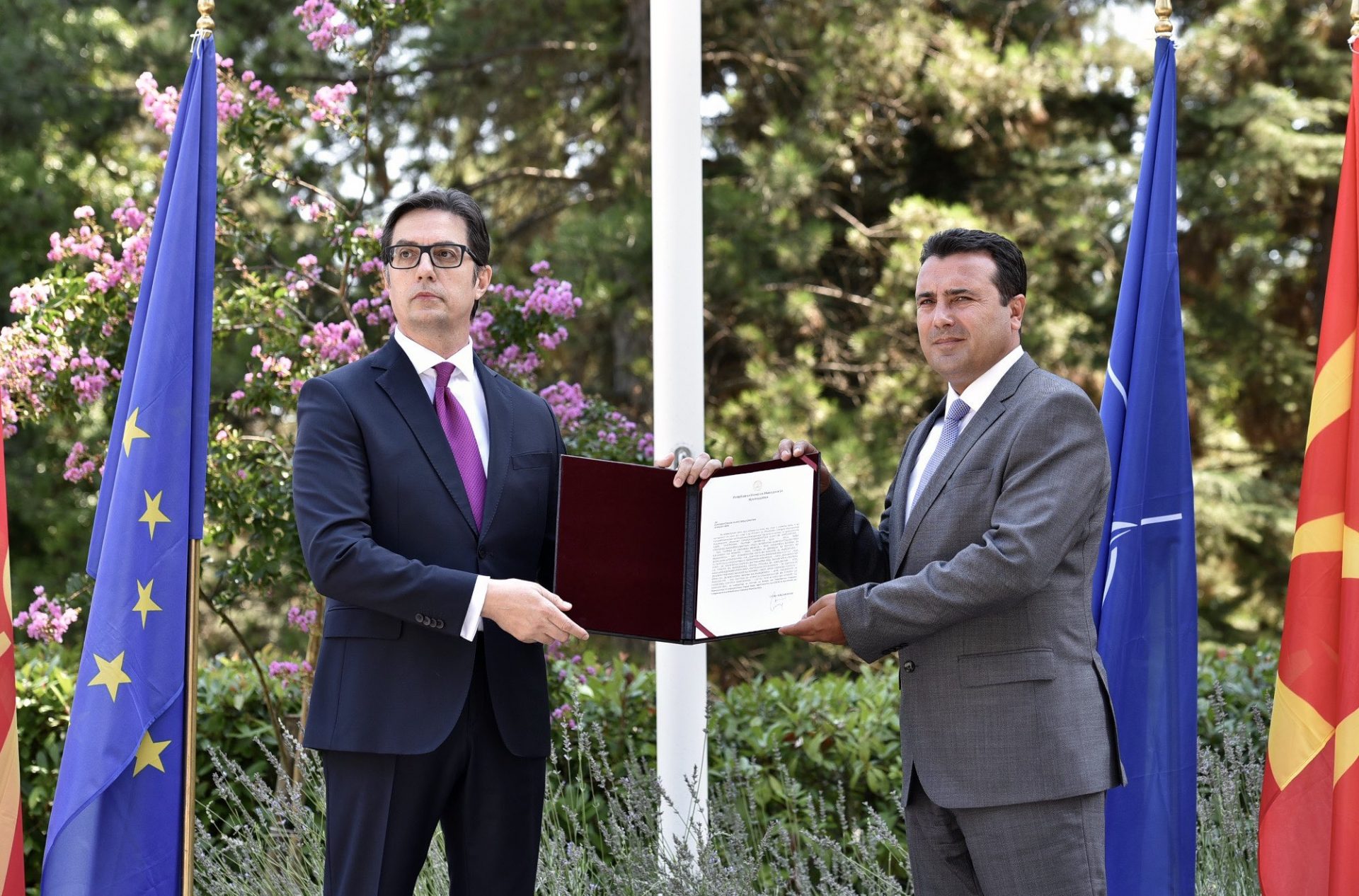There is an old, black and white comedy film by Billy Wilder called “One, Two, Three!”. It tells the story of Mac, chairman of the Western Germany branch of Coca-Cola. While Mac is trying to earn his promotion by negotiating a deal to export Coca-Cola to the Soviet Union (the shootings were made exactly during the construction of the wall), his boss in the US sends his daughter Scarlett on vacation in Berlin and entrusts Mac with looking after her. As it turns out, the young lady is a convinced socialist, rebelling against her father and to Mac’s horror she secretly marries a German from East Berlin, named Otto. They try to escape to Moscow, but thanks to his negotiating contacts in the USSR, Mac succeeds to bring them back. But now it turns out that Scarlett is pregnant and her father is on his way to Berlin. Mac has no other choice but to adopt Otto thereby giving him a good ancestry and making him an acceptable son-in-law. Coca-Cola’s boss arrives and eventually settles for Otto. Mac gets his promotion and he’s sent back to America, while Otto takes over his position in Europe. Happily married and awarded with a prestigious job, Otto quickly becomes a capitalist – and there you have a happy end.
In fact, this comedy from 1961 pretty accurately reflects the American (and generally the Western) elites’ understanding, that they could adopt the people from the Eastern bloc with the help of Coca-Cola and jeans, as well as the corresponding belief of their Eastern counterparts that this is what capitalism is all about. However, coca-cola and jeans failed to adopt Yugoslavia. Generally, this scenario can only work out with individuals (and we know quite a few examples) but not with entire societies, because you can’t give a beautiful wife and a managing position in Coca-Cola to every Bulgarian or Serb. These societies need to associate capitalism and its ideological basis in their thoughts. But it turns out that this intellectual process only goes one way and that’s not from coca-cola and jeans to freedom and democracy, but the exactly the other way around. Convictions help create material wealth, but material wealth doesn’t create strong convictions. That’s why the first “еuro-atlanticists” were separate individuals, who longed to become part of the elite of this new world, but didn’t quite understand its values.
And this is the root of all difficulties euro-atlanticism has experienced in Bulgaria. While everywhere else in the world euro-atlanticism was pushing through market economy – with the legal instruments of the EU and with the military force of NATO – here market economy was assigned with pushing through euro-atlanticism. In other words, to convince people in EU and NATO values using coca-cola and jeans.
This model is continuing to show variable and unpersuasive results; the worst thing is that it’s not sustainable and it can’t last very long. Ideologies are usually almost unlimitedly capable of providing faith, values and culture to maintain their economic models. No economy however has an unlimited amount of cash to sustain an ideology that people don’t believe in. Sooner or later the American foundations and the EU funds are going to finish their investments in Bulgaria and by then we need to change our attitude, if we don’t want go back to ground zero.
A typical example of an economy trying to maintain an ideology is the economy of the People’s Republic of Bulgaria. On the 9th of September 1944 there were only 6000 members of the communist party in Bulgaria plus some anti-establishment unrest in society, but far from the critical levels. The communists immediately launched their Soviet-style aggressive and futile industrialization, against market logic. In its madness, the totalitarian regime fetishizes the giant factories and industrial complexes. They were supposed to embody the communist ideals and like new idols to replace the old social values. And what was the result? The country defaulted several times under the heavy burden of financing an industry that has no market value, while the people didn’t perceive anything from Marx and Lenin; no “communist values” had been created – people have only become irresponsible, unreliable and wasteful (cause everything’s public property, as the saying goes); they have learnt that the state, the family and the work place are something you drain out run.
Sadly, the approach in developing euro-atlantic values during the transition wasn’t very different. The cash flow from Western foundations and private investments improved the well-being of many people and facilitated the transition to market economy. But they were very ineffective in promoting euro-atlanticism, although that was their main purpose – to create new values and new elite. It’s important to consider that euro-atlanticism turned everything upside down for the Bulgarian people and their worldview – not only economically, but also politically and culturally. Privatization and market economy exposed the hoax of the communist industry and left many people unemployed as well as many recently graduated specialists without perspective. This economic reform was carried out in the absence of a rational or ideological explanation of the long-term benefits of market development and competition; that’s they left such a bad aftertaste. On the cultural side (were the citizen-state relations are taking place) the army reform is a major example. Many people still believe that it destroyed our once powerful army – when the CC-23 rocket complexes in 2001 were destroyed, that decreased the trust in the army from 73% to 50% and that number never recovered. There was no conviction inspired by values in support of a professional army, which is of course a more conscious and pragmatic choice in modern times. That’s why so many people blame the destruction of our military potential on NATO and not on local corruption. Another good example is the gradual privatization of services (healthcare, social security, insurance, transport) which is still perceived with mistrust among the public, as people believe that the state is somehow abdicating from its duty to take care of them. On the social side (concerning the relations between citizens) we have to point out that the newly established, equal civil rights for gypsies, Muslims, homosexuals, anticommunists and other formerly oppressed individuals, now had to be respected – both legally and factually. This caused a huge turmoil for the majority of people and even sincere hatred towards the West among certain marginalized groups. Within two decades the social reality turned upside down in all three aspects of the political debate. To secure the smooth passing of these processes, politicians had to preach and argue in favor of the ideology of euro-atlanticism; but instead they just dropped it upon people without explanation – perhaps because they weren’t quite convinced themselves – hoping that people are just going to swallow everything with a few sips of coca-cola.
The fake euro-atlanticism of the political elite is going to disappear in the very moment the cash flow from the West stops. Connected companies have made billions by now through public procurements financed with euro funds. . The level of corruption was so high and visible from outside, that much of the potential cash never reached Bulgaria. According to the Commission report on the program period 2007-2013, Bulgaria is placed 24th out of 27 countries in utilizing euro funds, main reasons being the corruption and the lack of competitiveness. Another example is the inexplicable willingness of the government elected in 2005 to agree and launch the program for cooperative military bases with the United States. According to a telegram by the American Embassy in Sofia (https://bivol.bg/wlusbasing.html) all parties at the time (with the exception of Ataka) had given their support for the idea and they were lead by the president Parvanov – who was famous for his anti-NATO rhetoric and his support for Milosevic’s regime. This cabinet was generally very controversial, having an odd mix of pro- and anti- euro-atlantic policies. And the third example is GERB – a project that began with the conceptual and financial encouragement of the Hanns Seidel Foundation (affiliated with the German Christian-Social Party) but nowadays, as a political subject, is clumsily maneuvering between the West and Russia, depending on the situation. This is all just because both russophilia and euro-atlanticism have always been dependent on current financial interests and not on principled ideological views.
But in spite of the elites who possessed most the direct benefits, the economy of euro-atlanticism is also developing down another, parallel path. A susbstantial part of the euro funds, although plundered down the corrupted administrative chain, after all reached the people – the farmers, the schools, the public buildings in the province. We are talking about 15 billion leva of net profit between 2007 and 2015 coming from the pre-accession programs, the structural and cohesion funds, the Shengen program and the NPP Kozlodui fund. Meanwhile the immediate proximity and the open borders let hundreds of thousands of people to study and work abroad; and contrary to the stereotypical understanding, many of them return – with new knowledge, new skills, new worldview. In the end of the day Bulgarian people know that their future is in the EU and this becomes apparent when you look at EP election results and public opinion polls. But all this happened not thanks, but in spite of the unenthusiastic elite.
In connection to this, it’s important to consider that there is a widening gap between “euro” and “atlanticism”. Traditionally people have trust in the EU than in NATO. Between 1996 when we applied for membership and 2007 when we joined the Union, the public support for it has never gone below 80%. Of course, as the membership was approaching and beginning to happen, the optimism became colder and more realistic but it’s still holding well above 50%; in the last four years, people actually trust EU institutions more than national. But NATO isn’t doing nearly as good; with support hesitating around 50% which falls sharply every time the Alliance goes to war to fulfill its original purposes. This division has its roots before 89th. I’ve been researching socialist newspapers recently and I found many issues of “People’s Army” – all of them from the 80’s. In the mandatory column for intentional security I could spot that NATO is constantly being identified with USA only. And when writing about France or West Germany, they rather present them as involuntary associates of the Americans; by reprinting articles from communist newspapers in France which criticize Reagan or by describing the military exercises in West Germany as if it’s some occupied maneuvering ground for the American troops against USSR. The propaganda doctrine not only in Bulgaria but in the entire Eastern bloc has always been aiming to support leftist movements in Western Europe; to save it, as some kind of prodigal son from the capitalists and at the same time – to present America as the pure, hopeless imperialist evil. Today NATO doesn’t have its own representation in Bulgaria like the EU. Its promotion is solely dependent on politicians who entered the organization with suspicious motivation. Individuals who were personally involved with NATO as a cause (Petar Stoyanov, Solomon Passy) are now marginalized from politics.
No wonder why the leftists and the pro-Russian forces as a whole, are now clearly trying to shift the debate from „pro or against EU to “pro or against NATO” because they realize that they’ve already lost the battle against the Europe, while the benefits of the North Atlantic agreement are not as visible and direct, and the political elite hasn’t done much to promote its values. As I’ve pointed out above, the support for the Alliance has never been too low either. The problem is that due to the lack of political rhetoric, this approval is only principal and somehow distanced; it expresses some instinctive need to belong to a huge defense alliance after the dissolution of the Eastern bloc. But this approval becomes fragile every time the perspective of NATO turns into reality and the Alliance requires some actual engagement from our side. I mentioned NATO’s unstable public image during conflicts – for example in 1999 during the crisis in Kosovo, the approval for NATO hits an all-time bottom of 45%. And during the Gulf War more than two-thirds of public believed that NATO was protecting American economic interests and was interrupting in Iraq’s internal affairs; and 80% were strongly opposed to Bulgarian participation. This shows that the Bulgarian people are neither informed nor convinced in the values of NATO; for them it is an instrument for economic influence – not a guarantee for international security, democracy and human rights.
And that’s why the current presidential candidate of the russophiles is playing the army card – because NATO is the only matter which is still subject to debate, as there is no basis of values built to support it and there are no direct financial mechanisms and visible benefits to promote it. The only way is to promote it by political rhetoric. Hardly anyone believes that Germany would have become a euro-atlantic country if Konrad Adenauer had given up on changing the views of the majority of Nazi Germans and tried to rebuild it after the war simply by trading with the Western partners. Apparently that was expected to happen in Bulgaria. With few exceptions like Rosen Plevneliev who dared to open the public debate about euro-atlantic values and to put aside the topic about the material benefits, Bulgaria generally lacks politicians who are ready to preach euro-atlanticism for free and by conviction; so that Bulgarians could be euro-atlantics tomorrow – for free and by conviction. From now on the presidential institution will important precisely in this aspect – to set the direction of the public debate. It is of utmost importance that the anti-NATO candidate doesn’t get elected. The current and the former right president (Stoyanov) are in fact the two highest-ranking politicians in Bulgaria ever to endorse NATO in a critical situation, when the public opinion on the Alliance is predominantly negative. This clearly shows that if there is an appropriate and protected tribune from which one can express unpopular opinions, without being dependent on fragile parliamentary majorities and populist unrest, then this is the presidency.
The economy of euro-atlanticism in Bulgaria will soon cease to be subsidized from outside and it will shift to a “market regime”. And then convictions will play the key role, not money. It’s necessary to meet this change with a full set of new values; and we are falling behind with their development. This is going to take time. Because shifting to market economy and selling coca-cola is as easy as counting to three – “one, two, three”. But in “one, two, three” you can’t build euro-atlanticism and democracy.










